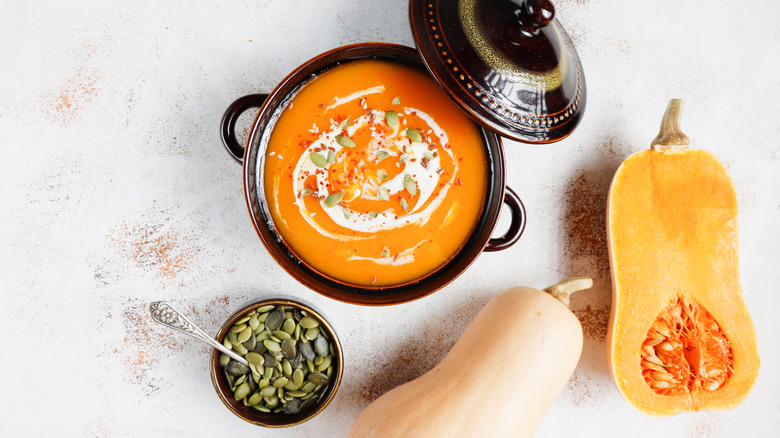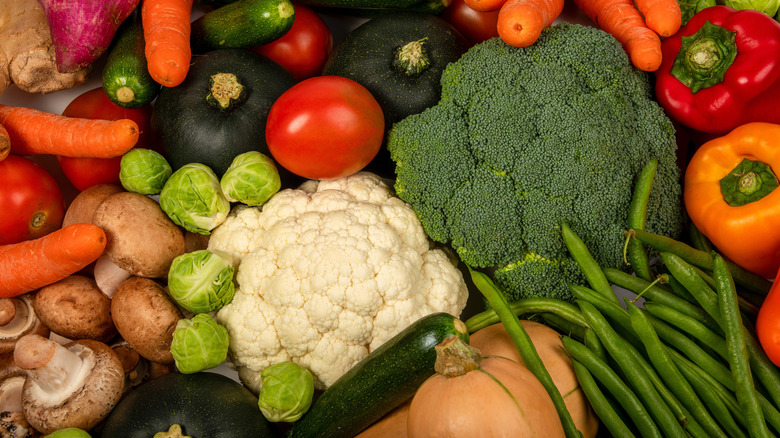The Fruits You Should Never Store Near Butternut Squash
Some produce items can conjure up a season just by uttering their names. The word watermelon evokes memories of Fourth of July barbecues, while apple says fall days in orchards spent sipping hot cider. Of course, butternut squash says cold weather, with its ability to produce delicious soups, roasted side dishes, or even fall-inspired French fries. Then, of course, there's its hardiness — butternut squash can last for two to four months or even longer if stored properly.
So, what's the proper way to store butternut squash? It should be kept in a cool, dry place that's between 50 and 55 degrees Fahrenheit — never store it in the refrigerator. Moisture spells trouble for this squash, as it can make the fruit mushy or even moldy. But the most important tip for storing your butternut squash is to keep it away from fruits and vegetables that emit ethylene gas, a hormone that certain items of produce emit that speeds up the ripening process.
Beware these ethylene producers
Several fruits that you probably have in your kitchen right now are major culprits, and they should never be stored near your butternut squash. These include apples, avocados, bananas, peaches, pears, peppers, and tomatoes. For these fruits, the gas triggers the ripening process, which turns the hard, green, unripened fruits into tender, colorful, ready-to-eat produce. For some fruits, such as butternut squash and other members of the cucurbit family, exposure to ethylene gas results in fruit that is spoiled and inedible.
Why are ethylene producers such a deadly foe of butternut squash? Essentially, ethylene is an aging hormone, tricking plants that don't naturally encounter it into aging prematurely, so the butternut squash that could potentially last you through winter would age and die before you ever get to it. To be safe, keep your butternut squash separate from these ethylene-heavy items, and enjoy the fruits of your smart storage.

